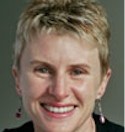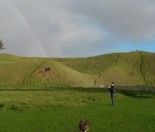I always remember a pop song of the early 60s. I would have been about six years old but the song was called My Dad by Paul Peterson and many years later I can still recite some of the lyrics (I promise not to sing!).
My dad, now there is a man
To me he is everything strong
No, he can’t do wrong, my dad
Okay they are pretty schmaltzy lyrics but the song struck a chord with a little South Canterbury boy whose dad was a grocer at the time.
There is something about songs from that era that you can still remember the words to many decades later.
Anyway My Dad came back to me when I realised we were in the lead up to Father’s Day.
It reminded me of how important fathering is, how our children need the presence of men in their lives and how good fathering is an essential part of strong communities.
And when Dads are more involved, their children have more self-esteem and like themselves more, they have fewer behavioural problems, more chances to experience success, better relationships with family and friends, they learn better and have more success at school.
This focus on fathering has also prompted me to reflect on my dear dad and what it is about him that is still with me today, and is part of who I am.
My Dad is David Clayton Leishman, an extremely genial and chatty Father who is known to the world as Dave. He’s an only child whose own father died when he was just 9 years old, so he in fact didn’t have anyone to guide him on being a great father. After his father died young Dave was sent off to boarding school, while his mother continued to run the Burkes Pass Hotel in the middle of the South Island’s rugged Mackenzie Country.
Dave is 84 now and like many dads up and down New Zealand he is immensely proud of his children. But it goes both ways as we very proud of him too, primarily because he is such a fine example of what a great Father can be. He has lead by example.
For many years, along with my Mother Noeline, he ran ‘Leishman’s Superette’ in North Street, Timaru. Now for those unaware of the finer points of the grocery trade, a Superette could be described as a large dairy or a small supermarket. I think we’ll opt for the latter.
Dave was “Open All Hours”, and while he wasn’t Arkwright he certainly had a bike like Grenville with a big basket on the front. He would ride the neighbourhood delivering groceries and at about 10.30 every Saturday night, winter and summer, he would have to bike several miles to meet the Starliner bus which would drop off the Sunday papers. It gets pretty cold in Timaru on a mid-winter’s night. Eventually they got a Morris Minor and life was good!
The ’50s and ’60s were different times for Dads. Dave marvels at the involvement of today’s fathers in their children’s lives. There were no ante natal classes and none of the integral participation in childbirth expected of today’s fathers.
When my Sister Gillian was born, Dave remained at home waiting for the news to say everything was okay. He sat at home in his Superette and stocked his shelves whilst waiting for the Doctor’s momentous call, with the news on Noeline’s condition and whether it was a boy or a girl. I think he had a celebratory whiskey and milk with the milkman who was delivering the day’s supplies.
He also recalls when my oldest brother David was born, that he rang the hospital to try and talk to my mother, but was told not to disturb her. Meanwhile she was pleading with the Matron to phone home but was told “sorry your husband is busy”.
Despite my father coming from a generation where men pretty much ruled the roost in most households, Dave wasn’t really like that. He wasn’t one to sit down in the comfort of his favourite chair and be waited on hand and foot. He would generally spend as much time in the kitchen as my mother, and would help with the chores and the ironing. Looking back that was possibly unusual for those days.
Because we lived in the back of the Superette, Dad figured very much in our daily lives and was involved in everything we did. . While the hours were horrendous, the fact that he was around was so important to our upbringing.
Along with being a devoted husband and father, I have huge admiration for the way my father treated other people. He was, and remains, intensely interested in other people’s lives. He really was the perfect grocer because he just loved to chat and solve the problems of the world with his many customers, some of whom ultimately became good friends.
After many years as ‘Arkwright’ Dave sold the shop and had a very successful career in Insurance. Again his clients were his friends and they trusted his advice implicitly. As many of the policies he sold are now coming to fruition, he often receives letters of appreciation from his former clients, thanking him for his support and advice.
It was telling when my parents left Timaru 20 years ago to move to Auckland to be near their four children, that Dave took his Timaru Phone Directory with him, just so he could keep tabs on his old city. He also kept up his Saturday subscription to the local newspaper!
Many of these stories were retold recently when my parents celebrated their 60th Wedding Anniversary with their brood of grandchildren around them.
So, near fathers day we place a Focus on Fathering and it’s a good time for fathers of all ages to stand up proud, to be honoured by their community for the simple act of being a good father and by simply being there for their children, involved in their lives. It is no more complicated than that.
And yes it could also be a time to honour the sadness that comes for some who had no father or fathering in their lives.
But rather than focusing on the lack of fathering or the dysfunctional fathers in our community, we ought to remember the good fathers in the hope that it will help raise up the status of fathering in New Zealand.
One organisation doing exactly this is Big Buddy. A mentoring programme based on the simple philosophy that boys need good male role models in their lives to become good men.
The idea is that with many boys today do not having a father or other male role model in their lives and while mothers do courageous work in raising their boys alone, they simply cannot do all the boy’s stuff.
It has been proved that boys learn through watching their dads or male teachers.
Big Buddy’s simple solution is to match these boys with a male mentor who can build a relationship similar to that of say an uncle and the hope is that this relationship is for life.
The Big Buddy mentor has to spend at least three hours a week with a boy (Little Buddy, aged 7-12) for at least a year but all going well, for much longer than that.
They spend quality time together doing ordinary things like kicking a ball round a park, fishing, walking on the beach or visiting a museum and they can both have a lot of fun in the process! A regular weekly phone call adds continuity to the relationship.
Like many great ideas it is a very simple concept that is working a treat and has had some great success.
It’s been proven that boys who know there is a man they can trust to show up and to listen have increased self-esteem, improved relationships and a sense of place in the world.
CEO of Big Buddy Richard Aston says that in our busy complicated world we may have forgotten the simple act of caring that is fathering.
“Fathers, stepfathers, grandfathers, uncles, mentors they are all part of the spectrum of fathering,” he says. “Fathering is simply men taking a caring interest in the younger ones of our communities.”
No doubt there are other great organisations doing similar work, but the main message has to be that Fathers are vitally important in the lives of their children, particularly boys, and this month is a chance to honour that fact.






